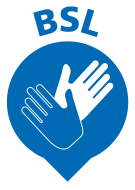Contact an alternative NHS service when it’s not a life-threatening situation.
If you need urgent medical help with an illness or injury but it’s not an emergency, there are other NHS services that will be able to provide you with the help you need.
This will help to ensure our ambulance crews are ready and available to attend to patients in life-threatening situations.
Who to contact
Urgent Treatment Centres
Overseen by doctors working with nurses, these centres provide medical help when it’s not a life-threatening emergency. They can often carry out tests like an ECG (electrocardiogram), blood test and X-ray, and can deal with many of the common problems people go to A&E for.
All urgent treatment centres are open for at least 12 hours every day, usually between 8am and 8pm, including bank holidays.
Find your nearest treatment centre.
NHS 111
You can visit NHS 111 online or call 111 if you think you need immediate medical attention. They will direct you to the best place to get help, which could include going to A&E, visiting your nearest urgent care centre, contacting your GP or going to your local pharmacy.
GP surgery
Your GP surgery is usually the first medical service to contact if you have a health concern. The GPs and other healthcare professionals at the surgery can treat many conditions, give health advice and refer you to other NHS services if necessary.
Urgent mental health support
NHS urgent mental health helplines are there to help people of all ages across England. You can call for 24-hour advice if you or someone you look after needs support, to speak to a mental health professional and for an assessment to find the right care.
Find your local urgent mental health helpline.
Pharmacy
Pharmacists are experts in medicines and can help you with a wide range of minor healthcare concerns, such as coughs, colds, sore throats, stomach problems and aches and pains. If they feel symptoms suggest it’s something more serious, they have the right training to make sure you get the help you need.
